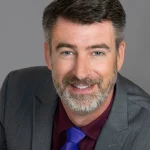Author: Zipho Sikhakhane
The global market economy is facing a tough time, with billions of dollars lost this week alone — and the local market is following suit with wisdom all around us The outlook is negative and some economies are preparing for another crisis. This does not provide an inspiring environment for someone looking to start or […]
The global market economy is facing a tough time, with billions of dollars lost this week alone — and the local market is following suit with wisdom all around us
The outlook is negative and some economies are preparing for another crisis. This does not provide an inspiring environment for someone looking to start or grow a business.
Something could be wrong with how we have been running big business. Perhaps entrepreneurs will need to look for inspiration elsewhere. The enthusiastic optimist in me is eager to find different, unconventional sources of inspiration.
Myles Munroe, a prominent author and life coach, once said: “The wealthiest places in the world are not the diamond mines in South Africa or the banks of the world … In the cemetery is buried the greatest treasure of untapped potential.”
In contrast, I wonder if we can seek inspiration from the wisdom that is around us but often overlooked.
Dr Miles Munroe and wife Image: Myles Munroe International Facebook
Surely we can be inspired by the behaviour of the women and children in our lives — people whose key behavioural traits have been historically marginalised or undervalued.
In the ’40s, Carl Gustav Jung was the first analytical psychologist to introduce the idea of female and male consciousness, anima and animus. He claimed that all beings naturally possess both levels of consciousness. However, the feminine traits remain largely suppressed. This is worrying because, he found, creativity stems from the feminine traits of spontaneity, emotion and intuition.
If entrepreneurs suppress these natural creative abilities, they run the risk of not using something that is critical during the business start-up phase. We are missing out on a chance to use half of our potential.
One of my all-time dreams in life was to meet Oprah Winfrey, one of the most influential women in the world. When I did, I was surprised to realise that a woman as powerful as she is still abounds with the very essence of “anima” — intuitive, spontaneous, humble. She was vulnerable enough to admit to not knowing all the answers and instead admired others for bringing brilliant questions to the table.
Entrepreneurship needs the humility to acknowledge when we do not know the answer; it needs to allow mentors and peers to drive the creative process.
Bestselling books on business and entrepreneurship talk about how women need to be more like men to succeed, and how showing feminine qualities can hinder success. I look forward to the day when we start reading more books on how women (and the rest of the world) can embrace their innate feminine strengths.
A similar case can be made for children. The “marshmallow challenge” experiment showed that preschool children were among the fastest groups to build the tallest marshmallow tower using just spaghetti sticks. They played, collaborated and completed the task on time, and with decorations. The adults planned, argued and even cheated, but could not complete the task on time.
We all know that we are most free, honest and playful when we are young. This open-minded mindset can propel a culture of innovation and creativity in a new business.
Beyond the behavioural traits of women and children, there are also the traits of the poor. They are the best implementers of the survivalist mindset. This is the mindset that most big businesses are operating under today — one that is critical when an entrepreneur needs to allocate limited resources to a wide set of activities.
I was raised by a Mother Teresa-type character who somehow mastered the art of allocating limited resources across a large group of people. She consistently ensured the nourishment of the family, despite a meagre wage.
Psychology studies repeatedly show that the poorest communities are happier than wealthy communities. They live relatively simple, meaningful lives, with strong social connections.
It is much easier to entrench these values of simplicity, purpose and community in the earlier stages of an organisation’s development than later on. Changing the habits of an established organisation can be much harder.
Albert Einstein, one of the greatest creative geniuses of all time, once said that we can’t solve problems by using the same kind of thinking we used when we created them.
As we establish the businesses of the future, it is worthwhile to seek inspiration from unconventional sources. This will hopefully help us get out of our current predicament.
Inspiration is all around us, we just need to open up to it.
Article written by Zipho Sikhakhane, business strategy keynote speaker
Contact Us at WeSpeak Global and follow us on Twitter
The articles, video and images embedded on these pages are from various speakers and talent.
These remain the property of its owner and are not affiliated with or endorsed by WeSpeak Global.

The Comeback Kids and “Misery loves company” so the saying goes – and in the age of Covid that seems to be the gravitational force that currently drives social and media conversations. Our attention is being continuously siloed toward the latest business failure, business rescue and somebody we know being adversely affected by the pandemic. […]

Care About and Challenge Each Other – The Two Keys to Team Performance I’ve been a part of lots of teams, in sports and business, and over the past 20 years I’ve had a chance to work with many high-performing teams, at companies like Google, Wells Fargo, Microsoft, Schwab, eBay, and others. I’ve also studied […]

LONG LIVE THE COMFORT ZONE. It’s been getting a bad rap for years! Popular activities for team-building include exercises to help teams think outside the box, workshops that force us outside our comfort zones, seminars are designed to inspire attendees to embrace discomfort in the name of personal growth … the list goes on. As […]

When I am working from home, one of my favorite places to go when I need a break is my daughter’s apiary (bee yard). I am absolutely fascinated by these amazing creatures and WHAT YOU CAN LEARN. Between their work ethic and how they function together as a colony, I think I could sit and […]

Digital Natives have grown up in a world that has been called the VUCA world. This is an acronym that covers four areas outlined below. V equals volatile U equals uncertain C equals complex A equals ambiguous There is a corresponding VUCA response that we can take advantage of as we walk with Digital Natives […]

Are we on the brink of the Un-Recession? The latest jobs report–published August 5–showed that the United States added over half a million new jobs in the month of July. Unemployment is at or a near a 50-year low. Both points add credence to a growing number of economists who are pushing back against […]

As Gerd often says that we keep asking the wrong question i.e. ‘what will 2022 bring?’ Instead, we should ask ‘what kind of future do we want?‘ This is a key point Gerd also reiterates in his year-end interviews; below. What will 2022 bring? Futurist Gerd Leonhard 9 The Hong Kong Economic Journal, asked Gerd to talk […]

Killing Fish – A freedivers take on spearfishing from Hanli Prinsloo who is an inspirational and motivational sustainability keynote speaker in Cape Town. ‘STRAIGHT SHOOTER’ (First published in DIVESITE Issue 3, 2011 with photographs by Roger Horrocks, Jean Marie Ghislain and Jean Treason – please read updated thoughts at bottom of article.) It was a choppy […]
No results available
ResetOur Mission
© All rights reserved 2024. Created using VOXEL THEME
1902 Wright Place, Carlsbad, CA, 92008